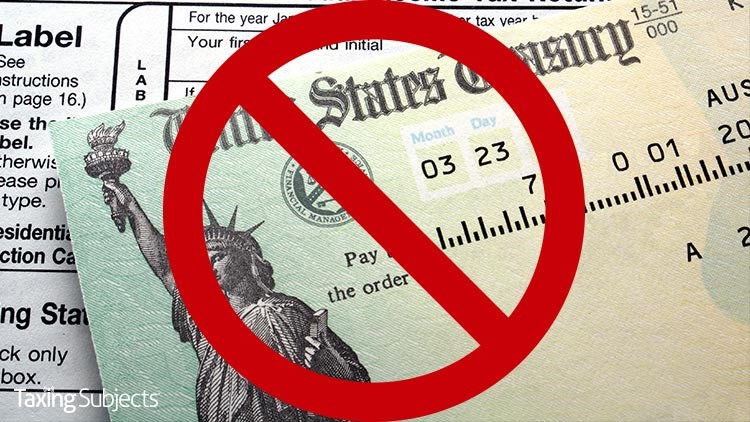
by | Apr 15, 2020 | Tax Tips and News
“Unlike any other filing season, the IRS is having to take unprecedented and drastic actions to address Coronavirus Disease 2019 (COVID-19) to protect the health and safety of its employees and the taxpaying public.”
With that, the Treasury Inspector General for Tax Administration (TIGTA) opened its interim report on the 2020 tax filing season.
The 24-page report gives the agency credit where it is due, but also gives readers a sense there’s trouble waiting in the wings. “The actions the IRS is taking in response to this pandemic will affect its ability to provide timely customer service and tax return processing,” the report warns.
The actions the IRS has taken so far, such as closing Tax Processing Centers, Taxpayer Assistance Centers, and other offices across the U.S., along with taking employees out of IRS offices and mandating they work from home, are all meant to protect IRS staff and taxpayers alike from the coronavirus’ spread.
But what’s likely to help slow the virus could also hinder how the IRS processes tax returns and handle taxpayer questions.
Tax Changes Present Challenges
The IRS has to follow whatever changes are set forth by any legislation passed since the previous tax year, or provisions of older laws that now come into play. TIGTA says the IRS this year faced a number of tax changes, mandated by a host of tax-related legislation:
- Further Consolidated Appropriations Act (2020)
- Taxpayer First Act (2019)
- Budget Bipartisan Act (2018)
- Tax Cuts and Jobs Act (2017)
- Protecting Americans from Tax Hikes Act (2015)
- The Patient Protection and Affordable Care Act (2010)
These new tax provisions set the stage for a perfect storm of sorts for the IRS, mandating numerous changes and updates to tax law before the procedural upheaval forced by the pandemic.
Processing Tax Returns
Along with updates to processes and procedures mandated by changes in the law, the IRS also made extensive changes to the Form 1040, U.S. Individual Income Tax Return, and the schedules associated with it. Three of the six Form 1040 schedules that were unveiled as new for Tax Year 2018 are now obsolete. Information from the discontinued schedules is now included on other existing schedules, or on the revised Form 1040 for Tax Year 2019.
Legislation also required the IRS to create the new Form 1040-SR for use by taxpayers age 65 or older to file their individual income tax returns. All the changes to the Form 1040 varieties required the IRS to update tax forms, instructions and publications.
The audit report says to date, the IRS has processed about the same number of tax returns as it processed this time last year—about 59 million returns. Refunds, however are down about 2% both in number and amounts from the previous year’s level at this time.
The IRS expects to get a total of some 155 million individual tax returns during calendar 2020, so that means about 96 million tax returns still have to make their way to the IRS.
Enter COVID-19
Throw into this mix precautions aimed at slowing the spread of the novel coronavirus, or COVID-19. These measures were undertaken to protect the health and safety of IRS employees as well as taxpayers. In early March, the IRS workforce was informed of the coronavirus threat and was directed to the Centers for Disease Control and Prevention website and an internal IRS website on COVID-19.
By March 13, it was time to clear the office; Commissioner Chuck Rettig ordered implementation of a number of previsions. They included maximizing telework flexibility for eligible employees Service-wide, expanding leave flexibility, reducing in-person contacts for all front-line employees with face-to-face interaction with taxpayers, implementing travel restrictions, and providing access to hygiene products to protect the health of employees and taxpayers entering facilities.
For any IRS location not already closed, the agency is also reducing staffing by about 50% to enhance social distancing for those who perform mission-critical work at the Tax Processing Centers. Processing of paper returns has been discontinued for the foreseeable future.
Despite the dispersed workforce, the IRS has also been tasked with sending out millions of economic stimulus payments to taxpayers.
Providing Customer Service
TIGTA, like the IRS, sees the IRS website as the most successful self-assistance option for taxpayers. Nearly 292 million visits were logged by IRS.gov this filing season as of February 28. The audit gave IRS good marks for the online tools available on the website.
Other attempts at assistance, though, aren’t so successful.
Because of the impact from the coronavirus, the IRS has shut down its central toll-free assistance number, opting instead to direct taxpayers and tax pros to an automated system, or to the IRS website for answers.
During the time when the help line was in operation, it fielded some 17 million phone calls during business hours up to February 28. Of those calls, about 8 million were answered with the automated system and another 4 million with human operators. The Inspector General faulted the IRS however, because the level of service put forth by the IRS was higher than the figure the auditors calculated.
Since then, the IRS has begun testing options for telephone assistors to work from home or from other offices. The auditors said they will continue to evaluate the agency’s efforts going forward.
Other Issues
TIGTA also says a tip led them to find some sloppy security at tax processing centers. Apparently a referral in January told of the potential for theft of taxpayer data from unsecured waste containers for sensitive documents. Investigators carried out overnight checks at the Austin, Texas; Fresno, Cal.; Kansas City, Mo.; and Ogden, Ut. Tax Processing Centers in February.
Out of a total of 185 sensitive document waste containers found, 56 or 30% were unlocked; 34 of those were unattended. Two more containers, while locked, were so full documents could be pulled out from the slot without opening the container.
Investigators also found taxpayer data on employees’ desks, in common areas accessible to anyone, and in recycling bins next to employees’ desks.
IRS management is working with the Inspector General’s Office to rectify the situation.
The overall conclusion to all these factors is obvious: with a much smaller workforce available to do a bigger-than-anticipated workload, something may have to give. The audit, unfortunately, can’t give us any direction in that; it can only determine that a situation exists. Until then, the men and women of the Internal Revenue Service will have to do what they’ve done in tax seasons past: Keep calm and carry on.
– Story provided by TaxingSubjects.com

by | Apr 13, 2020 | Tax Tips and News
The Internal Revenue Service says it is extending additional tax deadlines for individuals and businesses.
This latest Notice 2020-23, builds on the original announcement that taxpayers have until July 15 to file and pay federal income taxes. No penalties or interest will be due for filing or paying late. The update expands the original relief to additional returns, tax payments and other actions.
The extensions now generally apply to all taxpayers who have a filing or payment deadline falling on or after April 1 and before July 15.
Individuals, trusts, estates, corporations and other non-corporate tax filers qualify for this expanded timetable. This means anyone — including those Americans who live and work abroad — can now wait until July 15 to file their 2019 federal income tax return and pay any tax due.
Further Extension Available Beyond July 15
Individual taxpayers who need additional time to file beyond the expanded July 15 deadline can request an extension to October 15 by filing Form 4868 using their tax professional, tax software or online provider. Businesses who need extra time can request their extension using Form 7004.
Remember than an extension to file past the expanded deadline of July 15 does not give an individual or business more time to pay beyond July 15. Those with estimated tax liabilities should pay any taxes owed by the July 15 deadline to avoid additional interest and penalties.
Estimated Tax Payments
Notice 2020-23 also extends relief to any estimated tax payments that would otherwise be due on June 15, 2020. Any individual or corporation that has a quarterly estimated tax payment due on or after April 1 and before July 15 can wait until July 15 to make that payment, without penalty.
Unclaimed Refunds from 2016
Normally, April 15 would be the deadline to claim a refund from 2016 tax returns. With this latest Notice, that has been extended to July 15. The law provides a three-year window of opportunity to claim a refund. If a return isn’t filed within three years, any refund money becomes property of the U.S. Treasury. Taxpayers are required to properly address and mail the return and to ensure it is postmarked by the July 15 date in order to qualify.
Assistance for Taxpayers
The IRS has closed down its telephone support lines for taxpayers due to the coronavirus pandemic. The agency says normal operations will resume “when possible.”
In the meantime the IRS website offers a variety of online tools that can help taxpayers find answers to their tax questions. Search the Interactive Tax Assistant, Tax Topics, Frequently Asked Questions, and Tax Trails to get answers to common problems. Those who have already filed can check their refund status by visiting IRS.gov/Refunds.
– Story provided by TaxingSubjects.com

by | Apr 11, 2020 | Tax Tips and News
The IRS unveiled a new online tool to help non-filers register to receive an Economic Impact Payment (EIP): the “Non-Filers: Enter Payment Info Here” feature on IRS.gov. This new resource was quickly developed to help more qualifying Americans receive their payment, since the Treasury will begin sending EIPs next week.
While the IRS has repeatedly explained that the vast majority of taxpayers won’t have to do anything to receive an EIP, eligible non-filers who aren’t recipients of Social Security, Railroad Retirement, or Social Security Disability Insurance still need to provide some basic information to get the payment. In general, this includes:
- Individual non-filers with an AGI less than $12,200
- Married non-filers with a combined AGI of less than $24,400
The reason is that the IRS is currently required to use filing information from tax-year 2018 and 2019 returns and Forms SSA-1099 and RRB-1099 to determine whether filers qualify for an EIP and where it will be sent. The IRS simply doesn’t have up-to-date information for those who haven’t filed for more than a couple of years and aren’t receiving the government benefits mentioned above.
Luckily, the IRS says that using the “Non-Filers: Enter Payment Info Here” tool should be a straightforward affair: “First, visit IRS.gov, and look for ‘Non-Filers: Enter Payment Info Here.’ Then provide basic information including Social Security number, name, address, and dependents. The IRS will use this information to confirm eligibility and calculate and send an Economic Impact Payment.” Filers who want to receive their payment via direct deposit will be able to choose that option while filling out their information.
The IRS is also launching the “Get My Payment” tool on April 17, which the agency says will “help everyone check on the status of their payments … including the date their payment is scheduled to be deposited into their bank account or mailed to them.” Those who had not previously supplied direct-deposit banking information will be able to use Get My Payment to do just that.
Additional EIP- and COVID-19-related updates will be available on the “Coronavirus Tax Relief and Economic Impact Payments” page on IRS.gov.
Source: IR-2020-69
– Story provided by TaxingSubjects.com

by | Apr 10, 2020 | Tax Tips and News
Internal Revenue Service suggests that taxpayers e-file their tax returns instead.
In a press release encouraging taxpayers to electronically file their tax returns, the Internal Revenue Service yesterday evening said that it was not currently processing paper tax returns.
As if we needed further evidence that COVID-9 has upended everything that’s familiar in the US, the IRS announcing that it has temporarily suspended the processing of paper tax returns underscores another facet of our “new normal” post-coronavirus.
At the beginning of April, the IRS—pursuant to a recommendation from the Office of Personnel Management—notified its remaining on-site employees that they would be need to start working from home to prevent the spread of the coronavirus. This shift to “telework” also meant that many IRS services would be temporarily suspended.
The IRS has specifically cited the temporary suspension of the following services as a result of taking precautionary measures against COVID-19:
- Live phone support
- Processing paper correspondence
- Taxpayer Assistance Centers
- Distribution of paper forms
- IVES Request Processing
In addition to urging taxpayers to use electronic resources to file a tax return, the IRS suggested using online tools for other tax-related services, like requesting a transcript, paying tax owed, and checking the status of a tax refund.
Finally, if any of your clients have already filed a paper return, the IRS does not want them to e-file another tax return. Alluding to a substantial backlog for other written requests, the agency said, “Paper returns will be processed once processing centers are able to open.”
Source: IR-2020-68
– Story provided by TaxingSubjects.com

by | Apr 9, 2020 | Tax Tips and News
Erin Collins apparently loves a challenge. Collins, recently named the new National Taxpayer Advocate, has started her new position ahead of time in order to provide the Taxpayer Advocate Service (TAS) with complete leadership during this unsettled time.
Collins’ appointment as Advocate is a critical position inside the IRS, leading the TAS while serving as a voice for taxpayers inside the IRS and a senior advisor to the leadership of the agency. The National Taxpayer Advocate is also crucial for recommending potential changes in legislation.
“Collins is an excellent choice for this key position because she is familiar with tax issues from inside and outside the IRS,” said IRS Commissioner Charles Rettig. “The IRS leadership team and I look forward to a meaningful, productive working relationship with Collins and the Taxpayer Advocate Service to help improve our tax system for everyone.”
Not one to walk away from crisis, Collins said she’ll meet the challenge head-on.
“I will be starting my position as the National Taxpayer Advocate earlier than originally planned due to the recent national emergency,” Collins said. “I can’t imagine a more critical time to lead the Taxpayer Advocate Service and to help the nation’s taxpayers during this time.”
Collins was appointed in February by Treasury Secretary Steven Mnuchin. She replaces Nina Olson, who retired in July 2019 after serving as the nation’s Taxpayer Advocate for more than 18 years.
Commissioner Rettig also voiced his thanks to Bridget Roberts, who served as the acting Advocate when Olson left. Roberts now returns to her former post as Deputy National Taxpayer Advocate.
Tax Pro with a Proud History
Collins has extensive background in the tax community including 20 years as a managing director of KPMG’s Tax Controversy Services practice for the Western Area. Before that, she was an attorney in the IRS Office of Chief Counsel for 15 years. Throughout her career, she represented individuals, partnerships and corporate taxpayers on technical and procedural tax matters.
Collins has also provided pro bono services to taxpayers to resolve disputes with the IRS. Collins also donated her time to non-profit boards focusing on underserved communities where English is typically not the primary language spoken at home.
“Her interests fit in perfectly with the priorities of the Taxpayer Advocate Service, specifically, and the IRS, more generally,” Rettig added.
The Taxpayer Advocate Service helps taxpayers and protects taxpayer rights. The Service has at least one local taxpayer advocate office in every state as well as the District of Columbia and Puerto Rico. TAS can help taxpayers needing assistance resolving an IRS problem, if their problem is causing financial difficulty, or if the taxpayer believes an IRS system or procedure isn’t working as it should.
Taxpayers can call their local advocate, whose number is in their local directory. Check out the TAS website to learn more about the Taxpayer Advocate Service and how it can help.
– Story provided by TaxingSubjects.com






